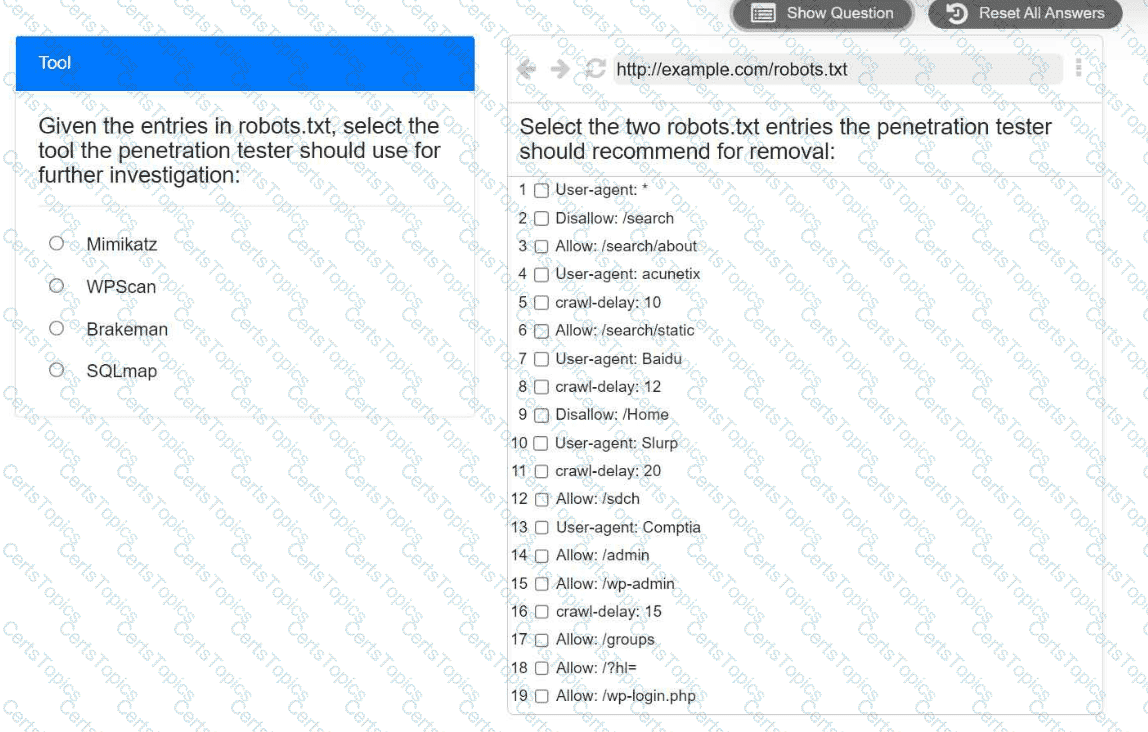A penetration tester is performing reconnaissance for a web application assessment. Upon investigation, the tester reviews the robots.txt file for items of interest.
INSTRUCTIONS
Select the tool the penetration tester should use for further investigation.
Select the two entries in the robots.txt file that the penetration tester should recommend for removal.

A penetration tester assesses an application allow list and has limited command-line access on the Windows system. Which of the following would give the penetration tester information that could aid in continuing the test?
A penetration tester gains access to a Windows machine and wants to further enumerate users with native operating system credentials. Which of the following should the tester use?
A penetration tester identifies the following open ports during a network enumeration scan:
PORT STATE SERVICE
22/tcp open ssh
80/tcp open http
111/tcp open rpcbind
443/tcp open https
27017/tcp open mongodb
50123/tcp open ms-rpc
Which of the following commands did the tester use to get this output?